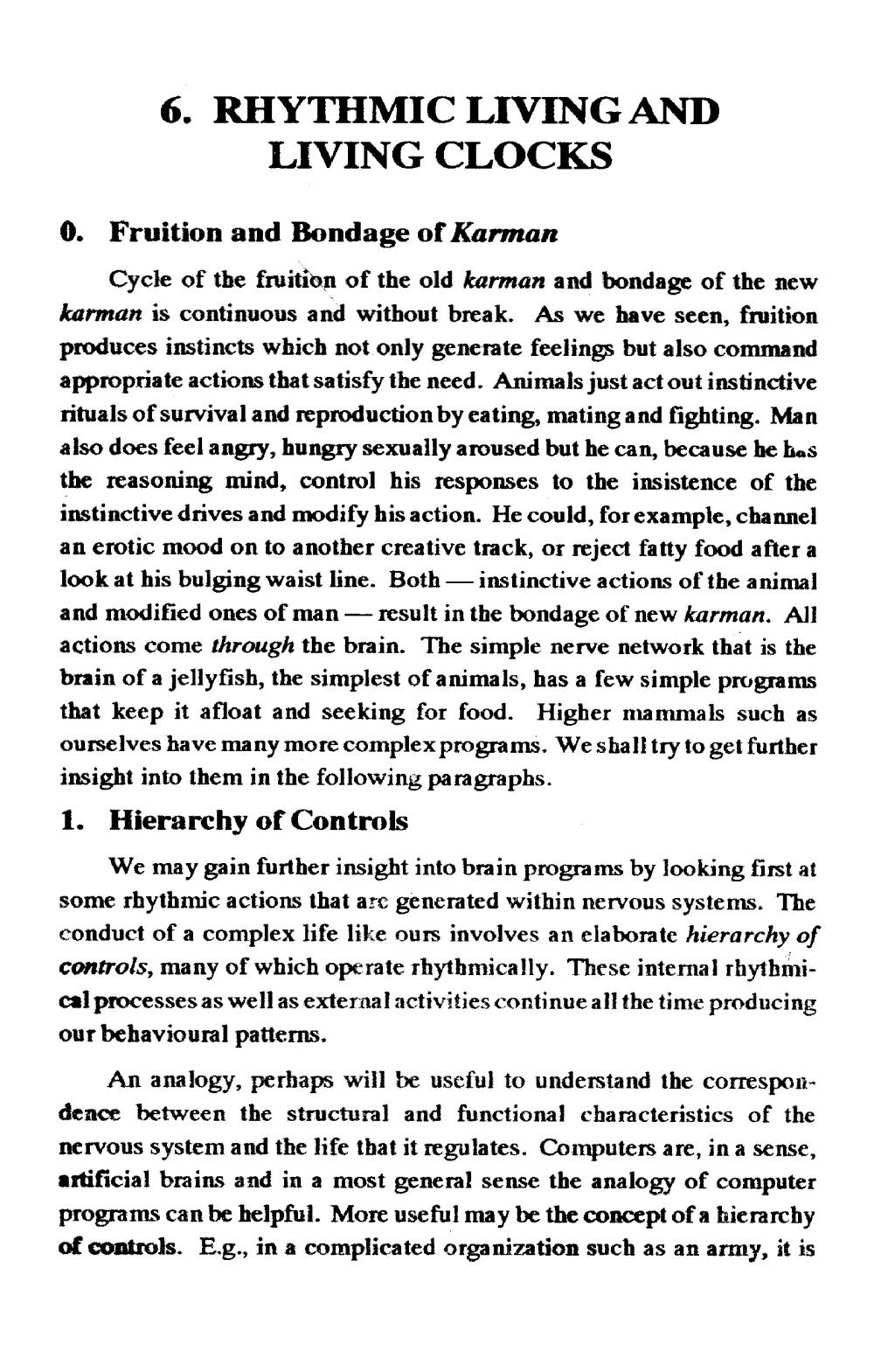________________
6. RHYTHMIC LIVING AND
LIVING CLOCKS
0. Fruition and Bondage of Karman
Cycle of the fruition of the old karman and bondage of the new karman is continuous and without break. As we have seen, fruition produces instincts which not only generate feelings but also command appropriate actions that satisfy the need. Animals just act out instinctive rituals of survival and reproduction by eating, mating and fighting. Man also does feel angry, hungry sexually aroused but he can, because he has the reasoning mind, control his responses to the insistence of the instinctive drives and modify his action. He could, for example, channel an erotic mood on to another creative track, or reject fatty food after a look at his bulging waist line. Both — instinctive actions of the animal and modified ones of man — result in the bondage of new karman. All actions come through the brain. The simple nerve network that is the brain of a jellyfish, the simplest of animals, has a few simple programs that keep it afloat and seeking for food. Higher mammals such as ourselves have many more complex programs. We shall try to get further insight into them in the following paragraphs. 1. Hierarchy of Controls
We may gain further insight into brain programs by looking first at some rhythmic actions that are generated within nervous systems. The conduct of a complex life like ours involves an elaborate hierarchy of controls, many of which operate rhythmically. These internal rhythmial processes as well as external activities continue all the time producing our behavioural patterns.
An analogy, perhaps will be useful to understand the correspondence between the structural and functional characteristics of the nervous system and the life that it regulates. Computers are, in a sense, artificial brains and in a most general sense the analogy of computer programs can be helpful. More useful may be the concept of a hierarchy of controls. E.g., in a complicated organization such as an army, it is




